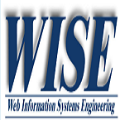CCF推荐 | 6月份截稿国际会议信息8条
人工智能
ICONIP 2019
International Conference on Neural Information Processing
全文截稿: 2019-06-15
开会时间: 2019-12-12
会议难度: ★★★
CCF分类: C类
会议地点: Sydney, Australia
网址:http://ajiips.com.au/iconip2019/
The 26th International Conference on Neural Information Processing (ICONIP2019) aims at presentation of professional research results and enthusiastic discussions among researchers, scientists, and industry professionals who are working in neural network, deep learning and related bio-inspired computing fields. The theme of the conference is Human Centred Computing: use of human sensor data to predict or model human emotion, intentions and goals with an overall aim to produce computer systems which are useful, usable and sympathetic to users. Papers matching the theme are particularly encouraged.
Suggested topics for the conference include, but are not limited to neural networks, deep learning, bio-inspired computing and the following topics: >
A. Theory and Algorithms
A1. Neurodynamics
A2. Machine learning
A3. Deep neural networks
A4. Computational intelligence
A5. Computer vision
A6. Pattern recognition
A7. Speech processing
A8. Time series analysis
A9. Reinforcement learning
A10. Bayesian networks
B. Computational and Cognitive Neurosciences
B1. Sensory perception
B2. Motor control
B3. Decision making
B4. Social cognition
B5. Emotion and reward
B6. Neuroeconomics
B7. Computational psychiatry
B8. Brain-machine interface
B9. Biometric systems/interfaces
B10. Neural data analysis
C. Human Centred Computing and Applications
C1. Big data analysis
C2. Robotics and control
C3. Bioinformatics
C4. Biomedical engineering
C5. Neuromorphic hardware
C6. Data mining
C7. Information security
C8. Social networks
C9. Computational finance
C10. Sports and rehabilitation
数据库管理与信息检索
WISE 2019
Web Information Systems Engineering
全文截稿: 2019-06-15
开会时间: 2019-11-26
会议难度: ★★★
CCF分类: C类
会议地点: Hong Kong, China
网址:https://wise2019.comp.polyu.edu.hk
WISE has established itself as a community aiming at high quality research and offering the ground for advancing efforts in topics related to Web information systems. Previous WISE conferences were held in Hong Kong, China (2000), Kyoto, Japan (2001), Singapore (2002), Roma, Italy (2003), Brisbane, Australia (2004), New York, USA (2005), Wuhan, China (2006), Nancy, France (2007), Auckland, New Zealand (2008), Poznan, Poland (2009), Hong Kong, China (2010), Sydney, Australia (2011), Paphos, Cyprus (2012), Nanjing, China (2013), Thessaloniki, Greece (2014), USA (2015), Shanghai, China (2016), Puschino, Russia (2017), and Dubai, UAE (2018).
The proceedings of WISE 2019 will be published in 2 separate volumes by Springer in its Lecture Notes in Computer Science series, with best papers to be recommended for publication in special issues of international journals. Topics of interest include but not limited to:
* Web-scale Distributed and Cloud Computing
* Recommender Systems
* Deep/Hidden Web
* Clickstream Analytics
* Rich Web UI and HCI
* Semantic Web
* Machine Learning for the Web
* Linked Open Data
* Human Factors and Social Issues
* Web Big Data Techniques and Mining
* Social Web Models and Analysis
* Web Agents and Web Intelligence
* Web Data Models
* Web Information Retrieval and Text Analytics
* Web Metrics and Performance
* Web Mining and Web Warehousing
* Web Security and Trust Management
* Web-based Business Processes and Web Services
* Web Tools and Visualizaton
* Web-based Applications (e.g., Auction and Negotiation, e-Commerce, e-Government, e-Learning, etc.)
计算机体系结构,并行与分布式计算
LISA 2019
Large Installation system Administration Conference
全文截稿: 2019-06-18
开会时间: 2019-10-28
会议难度: ★★★★
CCF分类: B类
会议地点: Portland, OR, USA
网址:https://www.usenix.org/conference/lisa19
Overview
System engineering, administration, operations—whatever your organization calls it—has evolved beyond merely making systems run. Today’s systems engineers design, develop, and run more complex, optimized, and distributed systems at all levels of scale. Come learn the skills and knowledge for pushing your systems to the edge at LISA19!
LISA, now in its 33rd year, wants to help you share your stories and experience. Whether you’re an infrastructure engineer, system administrator, SRE, academic, or developer, we highlight the best in systems engineering, and the people who make it all come together.
Call for Participation
LISA is soliciting proposals that demonstrate the present and future of operations in all of its forms. Submissions should inspire and motivate attendees toward action that improves their day-to-day work, as well as the tech industry as a whole.
We welcome and encourage participation from all individuals, including people that are underrepresented in, or excluded from technology: people of color, women, LGBTQ people, people with disabilities, students, veterans, and others with unique characteristics, whether or not they are protected by law. Similarly, we welcome participants from diverse professional roles: QA testers, security teams, DBAs, network administrators, compliance experts, UX designers, government employees, scientists. Regardless of who you are or the job title you hold, if you are a technologist who faces unique challenges, we encourage you to be a part of LISA19.
LISA only accepts vendor-neutral proposals. If you wish to promote or pitch a product at LISA, please email the USENIX Sponsorship Department about exhibition and sponsor opportunities.
Themes and Topics at LISA:
1.Design
Cloud Computing
Containerization
Machine Learning/AI
Big Data
Infrastructure/Platform/Function as a Service
Scalability and Resilience
Infrastructure Design
Performance Planning
Backup and Recovery
Strategic Vision
What's Next
2.Develop
Automation
Continuous Integration
Continuous Delivery
System Engineering
Monitoring and Instrumentation
Performance Tuning
Debugging
Security Engineering
Databases
Programming
Release Engineering
3.Run
DevOps
Open Source Communities
Communication
Standards and Regulatory Compliance
On-Call Strategies
Managing IT Teams
Diversity and Inclusion
Mentorship, Education, and Training
Recruiting and Retention
人工智能
ICTAI 2019
IEEE International Conference on Tools with Artificial Intelligence
全文截稿: 2019-06-20
开会时间: 2019-11-04
会议难度: ★★★
CCF分类: C类
会议地点: Portland, Oregon
网址:http://www.ictai2019.org/
ICTAI 2019: The IEEE International Conference on Tools with Artificial Intelligence (ICTAI) is a leading Conference of AI in the Computer Society providing a major international forum where the creation and exchange of ideas related to artificial intelligence are fostered among academia, industry, and government agencies.
The conference facilitates the cross-fertilization of AI ideas and promotes their transfer into practical tools, for developing intelligent systems and pursuing artificial intelligence applications.
The ICTAI encompasses all technical aspects of specifying, developing and evaluating the theoretical underpinnings and applied mechanisms of the AI-based components of computer tools such as algorithms, architectures and languages.
Topics (not limited to)
• AI Algorithms
• AI in Bioinformatics
• AI in Computer Security
• AI in Databases and Data Mining
• AI in E-commerce
• AI in Games
• AI in Information Assurance
• AI in Logistics
• AI in Medicine
• AI in Multimedia
• AI in Applications
• AI in Robotics
• AI in Software Engineering
• AI in Smart Cities
• Case-Based Reasoning
• Cognitive Modelling
• Constraint Programming
• Collaborative Software Agents
• Reasoning Under Uncertainty
• Evolutionary Computing
• Hybrid Intelligent Systems
• Intelligent Information Retrieval
• Intelligent Tutoring/Training Systems
• Intelligent Internet Agents
• Intelligent Interface Agents
• Knowledge-based Systems
• Knowledge Extraction
• Knowledge Management and Sharing
• Knowledge Representation and Reasoning
• Machine Learning & Deep Learning
• NLP/NLU Processing & Understanding
• Neural Nets
• Ontologies
• Planning and Scheduling
• Qualitative Reasoning
• Search and Heuristics
• Semantic Web Methods/Tools
• Speech Processing and Understanding
• Image-Video Processing & Understanding
计算机体系结构,并行与分布式计算
ICA3PP 2019
International Conference on Algorithms and Architectures for Parallel Processing
全文截稿: 2019-06-24
开会时间: 2019-12-09
会议难度: ★★★
CCF分类: C类
会议地点: Melbourne, Australia
网址:http://nsclab.org/ica3pp2019/index.html
ICA3PP 2019 is the 19th in this series of conferences started in 1995 that are devoted to algorithms and architectures for parallel processing. ICA3PP is now recognized as the main regular event of the world that is covering the many dimensions of parallel algorithms and architectures, encompassing fundamental theoretical approaches, practical experimental projects, and commercial components and systems. As applications of computing systems have permeated in every aspect of daily life, the power of computing system has become increasingly critical. This conference provides a forum for academics and practitioners from countries around the world to exchange ideas for improving the efficiency, performance, reliability, security and interoperability of computing systems and applications.
Following the traditions of the previous successful ICA3PP conferences held in Hangzhou, Brisbane, Singapore, Melbourne, Hong Kong, Beijing, Cyprus, Taipei, Busan, Melbourne, Fukuoka, Vietri sul Mare, Dalian, Japan, Zhangjiajie, Granada, Helsinki, and Guangzhou, ICA3PP 2019 will be held in Melbourne, Australia. The objective of ICA3PP 2019 is to bring together researchers and practitioners from academia, industry and governments to advance the theories and technologies in parallel and distributed computing. ICA3PP 2019 will focus on two broad areas of parallel and distributed computing, i.e. architectures, algorithms and networks, and systems and applications. The conference of ICA3PP 2019 will be organized by Swinburne University of Technology, Australia.
We invite submissions from academia, government, and industry presenting novel research on all aspects of information security and privacy primitives or protocols. Topics of ICA3PP 2018 include but are not limited to the following areas:
Track 1: Parallel and Distributed Architectures
Parallel Architectures
Parallel Programming Paradigms
Heterogeneous Systems
Service-Oriented Architectures
Track 2: Software Systems and Programming Models
Cluster, Distributed & Parallel Operating Systems and Middleware
Programming Models for Compute and Storage
Parallel File Systems and Storage
Parallel and Distributed Databases
Tools for Programming and Analysis of System Software
Track 3: Distributed and Network-based Computing
Mobile and Wireless Computing
Cloud, Grid, and Services Computing
Web and Internet Computing
Interconnection Networks
Network Simulations
Track 4: Big Data and its Applications
Architecture, Networks and Systems of Big Data
Big Data Applications, Algorithms and Data Structures
Research and Development Trends of Big Data
Big Data Benchmarking, Interoperability, Monitoring, Security, Privacy and Management
Distributed Data Analytics and Feature Extraction
Big Data Interoperability and Orchestration
Parallel Processing for Big Data
Track 5: Parallel and Distributed Algorithms
Reliability and Fault-tolerant Computing
High-performance Scientific Computing
Parallel and Distributed Algorithms
Resource Management and Scheduling
Track 6: Applications of Parallel and Distributed Computing
Multimedia in Parallel Computing
Parallel Computing in Bioinformatics
Parallel Machine Learning Algorithms
Industrial Applications
Track 7: Service Dependability and Security in Distributed and Parallel Systems
Dependability Issues in Computer Networks and Communications
Dependability Issues in Distributed and Parallel Systems
Dependability of Software Defined Networks
Self- healing, Self-protecting and Fault-tolerant Systems
Network and Information Security
Trust, Security and Privacy in Cloud computing, Social Networks, and Internet of Things
Track 8: Internet of Things and Cyber-Physical-Social Computing
Social Computing and Analytics on Cyber-Physical Data
Smart Communities with Cyber-Physical Systems
Ubiquitous Sensing in Social Networks
Building Social Life Networks
Pervasive/Ubiquitous Control, Computing and Networking
Cyber-Physical Systems and Networks
Cyber-Physical Social Applications and Case Studies
Track 9: Performance Modeling and Evaluation
Performance of Parallel & Distributed Computing Systems
Software and Hardware Reliability, Testing, Verification and Validation
Tools and Environments for Parallel & Distributed Software Development
Optimization, Modeling and Simulation
Stochastic Analysis, Statistical Analysis and Simulation
Data Collection and Analysis
Planning, Scheduling and Quality-of-Service
Game theory, Economics and Control Theory
计算机网络
HotNets 2019
The Workshop on Hot Topics in Networks
摘要截稿: 2019-06-24
全文截稿: 2019-06-28
开会时间: 2019-11-13
会议难度: ★★★
CCF分类: C类
会议地点: Princeton, New Jersey, USA
网址:https://conferences.sigcomm.org/hotnets
The 18th ACM Workshop on Hot Topics in Networks (HotNets 2019) will bring together researchers in computer networks and systems to engage in a lively debate on the theory and practice of computer networking. HotNets provides a venue for discussing innovative ideas and for debating future research agendas in networking.
We invite researchers and practitioners to submit short position papers. We encourage papers that identify fundamental open questions, advocate a new approach, offer a constructive critique of the state of networking research, re-frame or debunk existing work, report unexpected early results from a deployment, report on promising but unproven ideas, or propose new evaluation methods. Novel ideas need not be supported by full evaluations; well-reasoned arguments or preliminary evaluations can support the possibility of the paper’s claims.
We seek early-stage work, where the authors can benefit from community feedback. An ideal submission has the potential to open a line of inquiry for the community that results in multiple conference papers in related venues (SIGCOMM, SOSP, OSDI, NSDI, MobiCom, MobiSys, CoNEXT, etc.), rather than a single follow-on conference paper. The program committee will explicitly favor early work and papers likely to stimulate reflection and discussion over “conference papers in miniature”. Finished work that fits in a short paper is likely a better fit with the short-paper tracks at either CoNEXT or IMC, for example.
HotNets takes a broad view of networking research. This includes new ideas relating to (but not limited to) mobile, wide-area, data-center, home, and enterprise networks using a variety of link technologies (wired, wireless, visual, and acoustic), as well as social networks and network architecture. It encompasses all aspects of networks, including (but not limited to) packet-processing hardware and software, virtualization, mobility, provisioning and resource management, performance, energy consumption, topology, robustness and security, measurement, diagnosis, verification, privacy, economics and evolution, interactions with applications, and usability of underlying networking technologies.
Position papers will be selected based on originality, likelihood of stimulating insightful discussion at the workshop, and technical merit. Accepted papers will be posted online prior to the workshop and will be published in the ACM Digital Library to facilitate wide dissemination of the ideas discussed at the workshop.
计算机体系结构,并行与分布式计算
ICCD 2019
IEEE International Conference on Computer Design
摘要截稿: 2019-06-21
全文截稿: 2019-06-28
开会时间: 2019-11-17
会议难度: ★★★★
CCF分类: B类
会议地点: Abu Dhabi, United Arab Emirates (U.A.E.)
网址:http://www.iccd-conf.com/Home.html
The IEEE International Conference on Computer Design encompasses a wide range of topics in the research, design, and implementation of computer systems and their components. ICCD’s multi-disciplinary emphasis provides an ideal environment for developers and researchers to discuss practical and theoretical work covering systems and applications, computer architecture, verification and test, design tools and methodologies, circuit design, and technology. We especially encourage submissions that look forward to future systems and technologies.
Original manuscripts are welcomed to be submitted to the following tracks:
Track 1. Computer Systems: Systems architecture (memory hierarchy, memory, storage, NoC), and systems software (compiler, programming language/model, OS, hypervisor, runtime) design and co-design for embedded/real-time systems, high-performance computing (HPC) systems, data center and cloud/edge servers, exascale systems; General purpose multi/many cores, co-processors, accelerators, and application-specific systems; Support for security, reliability, and energy efficiency and proportionality; Architectures and compilers for thread parallelism, synchronization, and communication; Virtual memory; Systems support for NVMs and future novel computing platforms including quantum, neuromorphic, and bio-inspired computing; Specialized OS, runtime, and storage systems for high-performance computing and exascale systems.
Track 2. Electronic Design Automation: System-level design and synthesis; High-level, logic and physical synthesis; Physical planning, design, and early estimation for large circuits; Automatic analysis and optimization of timing, power, variability/yield, temperature, and noise; Physical design, including floorplanning, placement, and routing; Clock-tree synthesis; Verification methods at different levels of the EDA flow; Tools for multiple-clock domains, asynchronous, and mixed timing methodologies; CAD support for FPGAs, ASSPs, structured ASICs, platform-based design and NOC; DfM and OPC methodologies; Tools and design methods for emerging technologies (MEMs, spintronics, nano, quantum).
Track 3. Embedded Systems and IoT: All aspects of embedded systems, and IoT devices; Ubiquitous computing, and sensing; Cloud computing; Wireless sensor networks; RFID; Data collection, and information management; Digital control; Man-machine interaction; Plant automation systems, and optimal resource allocation; Factory of the future; IoT sensors for supply-chain management; Blockchain for enterprise resource planning, and supply-chain management; Safety, maintainability, and availability; Fail-safe vs. fail-operational; Smart environments; Smart water; Smart energy, and smart grid; Smart homes; Smart driving, smart traffic; Pervasive sensing, and control devices; Linking the cyber and biological worlds; Brain-machine interfaces; Body-area networks; Wireless implanted interfaces.
Track 4. Logic and Circuit Design: Circuits and design techniques for digital, memory, analog and mixed-signal systems; Circuits and design techniques for high performance and low power; Circuits and design techniques for robustness under process variability, electromigration, and radiation; Design techniques for emerging and maturing technologies (MEMs, nano-spintronics, quantum, flexible electronics, multigate devices, in-memory computing); Asynchronous circuit design; Signal-processing, graphic-processor, and datapath circuits.
Track 5. Processor Architecture: Microarchitecture design techniques for single- and multi-core processors, such as instruction-level parallelism, pipelining, caching, branch prediction, and multithreading; Techniques for low-power, secure, and reliable processors; Embedded, network, graphic, system-on-chip, application-specific and digital signal processor design; Hardware support for processor virtualization; Real-life design challenges: case studies, tradeoffs, postmortems.
Track 6. Test, Verification, and Security: Design error debug and diagnosis; Fault modeling; Fault simulation and ATPG; Analog/RF testing; Statistical test methods; Large volume yield analysis and learning; Fault tolerance; DFT and BIST; Functional, transaction-level, RTL, and gate-level modeling and verification of hardware designs; Equivalence checking, property checking, and theorem proving; Constrained-random test generation; High-level design and SoC validation; Hardware security primitives; Side-channel analysis; Logic and microarchitectural countermeasures; Hardware security for IoT; Interaction between VLSI test and trust.
计算机科学理论
ISAAC 2019
International Symposium on Algorithms and Computation
全文截稿: 2019-06-30
开会时间: 2019-12-08
会议难度: ★★★
CCF分类: C类
会议地点: Shanghai, China
网址:http://itcs.shufe.edu.cn/isaac2019/
The 30th International Symposium on Algorithms and Computation (ISAAC 2019) will take place in Shanghai, China on December 8-11, 2019. The symposium is intended to provide a forum for researchers working in algorithms and theory of computation.
广告
登录查看更多
相关内容
International Conference on Neural Information Processing由亚太神经网络协会(APNNS)组织。第26届神经信息处理国际会议(ICONIP2019)旨在向从事神经网络、深度学习和相关生物启发计算领域的研究人员、科学家和行业专业人士介绍专业研究成果和热烈讨论。会议的主题是以人为中心的计算:利用人类传感器数据来预测或模拟人类的情感、意图和目标,总的目标是产生对用户有用、可用和有同情心的计算机系统。特别鼓励与主题相匹配的论文。官网链接:http://ajiips.com.au/iconip2019/
Arxiv
78+阅读 · 2019年11月10日





